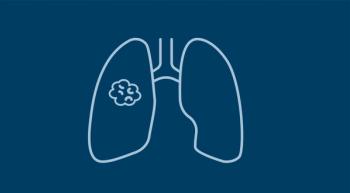
At a median follow-up of 33.3 months, the median overall survival was not evaluable with cemiplimab, vs 20.7 months with chemotherapy alone, in this patient subset.

At a median follow-up of 33.3 months, the median overall survival was not evaluable with cemiplimab, vs 20.7 months with chemotherapy alone, in this patient subset.

In a subset of patients with KRAS G12C–mutated non–small cell lung cancer, adagrasib yielded an overall response rate of 68%.

A cohort study identified factors associated with late deaths in childhood cancer survivors.

Three groups have combined efforts to create a Health Equity Report Card pilot program which will seek to address the sources of disparities in the cancer care system.

According to Fennec Pharmaceuticals, the National Comprehensive Cancer Network is updating it guidelines to recommend injections of sodium thiosulfate to reduce the risk of ototoxicity in pediatric patients receiving cisplatin.

The National Comprehensive Cancer Network has updated their guidelines to include neratinib for patients with HER2-negative metastatic breast cancer.

Nanvuranlat inspired better progression-free survival in patients with advanced, pretreated refractory biliary tract cancer, meeting the primary end point of a phase 2 trial.

The median overall survival with nivolumab plus chemotherapy was 12.8 months, vs 10.7 months with chemotherapy alone, in patients with treatment-naïve advanced esophageal squamous cell carcinoma.

Findings showed that Black patients were 4.3 percentage points less likely to receive any opioid and 3.1 percentage points less likely to receive long-acting opioids near end-of-life compared with White patients.

Glofitamab, an investigational CD20xCD3 T-cell engaging bispecific antibody, elicited encouraging response rates in patients with relapsed/refractory diffuse large B-cell lymphoma in a phase 1/2 study.

Combining enzalutamide with salvage radiation therapy helped delay prostate-specific antigen progression in patients with PSA-recurrent, high-risk prostate cancer.

The autologous tumor lysate-loaded dendritic cell vaccination reduced the risk of death for patients with newly diagnosed glioblastoma by 20%.

As of November 2022, osimertinib is the preferred choice for the frontline treatment of EGFR-mutated non-small cell lung cancer. However, some experts believe that combination chemotherapy plus EGFR TKI will become a standard frontline treatment.

At a 5-year follow-up, the failure-free survival rate with capecitabine was 83.3% vs 72.2% with observation.
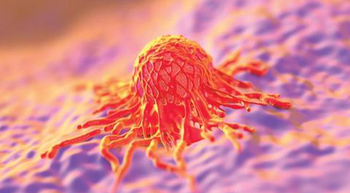
Patients with heavily pretreated clear cell gynecologic cancer achieved encouraging responses with single-agent pembrolizumab.

The overall survival benefit associated with pembrolizumab for patients with head and neck cancer continued to be observed at a 4-year follow-up of the KEYNOTE-048 trial.
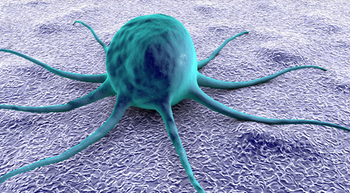
Following potential safety concerns with 3 PARP inhibitors, manufactures have voluntarily elected to withdraw the indications for patients with heavily pretreated patients with BRCA-mutated ovarian cancer.

A joint statement from the American Society of Clinical Oncology and the Association of Community Cancer Centers outlines steps to reduce gaps in care for underserved communities.
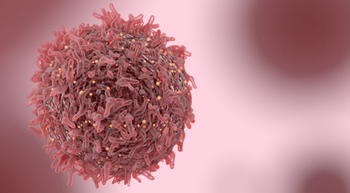
The NCCN guidelines have been amended to include trastuzumab deruxtecan for use in patients with HER2-low metastatic breast cancer and sacituzumab govitecan for use in patients with triple-negative breast cancer or hormone receptor–positive, HER2-negative disease.

Preliminary findings from the phase 1/2a TEM-GBM study highlight the potential utility of temferon, genetically modified Tie2-expressing monocytes targeting interferon a2 in treating patients with glioblastoma.

Patients with heavily pretreated lymphoma experienced promising clinical responses following treatment with the innate cell engager AMF13 plus preactivated and expanded natural killers (NK) cells.
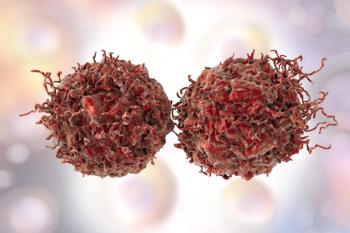
Radiotherapy treatment has continued to evolve to become both shorter and faster in potentially curing prostate cancer.

A post-hoc analysis of 2 studies revealed that patients with advanced prostate cancer receiving apalutamide reported positive wellbeing scores during treatment.

Patient-reported outcomes demonstrated that nivolumab plus cabozantinib was associated with improved quality of life, while sunitinib was associated with health-related deterioration, in treatment-naïve renal cell carcinoma.

The majority of patients who received telotristat ethyl to treat their carcinoid syndrome reported stable or increased weight at a 6-month follow-up.

Patients receiving immune checkpoint inhibitors for renal cell carcinoma or melanoma responded well to the COVID-19 vaccine.

New research suggests that fertility-sparing surgery is feasible and safe in treating ovarian malignant germ cell tumors.

Patients with prostate cancer fared better following treatment with magnetic resonance-guided focused ultrasound focal therapy than with radical prostatectomy or radiation therapy, shows study presented at 2021 AUA Annual Meeting.

Obese men are more likely to have improved overall survival following treatment for mCRPC than man who are overweight or normal weight, analysis finds.

Patients with chronic lymphocytic leukemia (CLL) are at an increased risk for infection.

Published: October 21st 2022 | Updated:

Published: January 4th 2023 | Updated:

Published: February 8th 2023 | Updated:
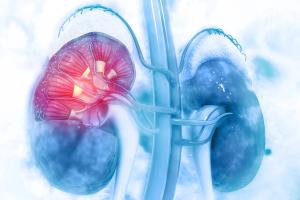
Published: January 29th 2022 | Updated:

Published: September 24th 2021 | Updated:

Published: February 13th 2023 | Updated: